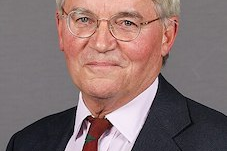Film on abortion to be televised tonight
An abortion is to be shown on British television for the first time tonight. The programme My Foetus, (Channel Four 11.05pm) will also use previously banned images of aborted foetuses. The programme will show a woman who is four weeks pregnant having a 'vacuum pump' abortion. Viewers will also see pictures of foetuses aborted at 10 weeks and 21 weeks, when limbs and a face can clearly be seen. Similar images were banned by broadcasters, who were backed by the courts, as being 'offensive' when the Pro-life Alliance tried to show them as part of a general election broadcast in 2001. Channel 4 said the programme, which breaks one of the last taboos on the small screen, only uses the images in the context of a wider discussion about the battle between the pro-choice and pro-life sides of the abortion debate. "The pro-life film contained 23 images, many repeated, in a four-minute film," said Prash Naik, Channel Four's head of legal affairs. "This film uses four images in a 30-minute film which carefully explains the issues. It is very, very different." More than 180,000 abortions are performed each year, and it is now one of the commonest and safest medical procedures in Britain. "I decided to include images of 10, 11 and 21-week-old aborted foetuses in my film because, however shocking, repulsive and confrontational they are, they represent the reality," said Julia Black, the independent film-maker behind the programme. "Aborted foetuses from 10 weeks on look like tiny babies. Rationally, we know abortion ends the life of a potential human being, but why, when we see what they look like, are we so shocked?" Black, who underwent an abortion herself at 21, said she wanted to get out of the 'lazy' debate about the issue and have an honest discussion. "The pro-choice movement must know how difficult it is to fight back against the powerful image of what looks like a dead baby," she said. 'So they have not engaged with these shock tactics." Black is the daughter of the founder of the Marie Stopes Clinic, one of the leading pro-choice advice centres on abortion in the country. She said she wanted to challenge her own instinctive pro-choice view on abortion. She now has a child born when she was 34. "After giving birth to my daughter I knew why it was important to make this film," she said. "I didn't want her, or her friends, years down the line to still have to feel it is something they couldn't talk about. "I wanted to kick-start the debate and make society re-examine its views on abortion." The abortion agency, BPAS: Abortion Care, welcomed the film, saying that it made an important contribution to the debate. "We have to be honest," said Ann Furedi, chief executive of BPAS. "We do not believe that women who request abortions are ignorant about what abortion is." In a statement Archbishop Peter Smith, chairman of the department of Christian Responsibility and Citizenship of the Bishops' Conference said: "Television images of an abortion, disturbing and repulsive as they undoubtedly would be, could prove a powerful anti-abortion message, highlighting the full horror of abortion. The truth of what is being done out of the public gaze is the true scandal of abortion. Every day in England and Wales there are 481 abortions on average. "Everyone, especially women, has a right to know what abortion really involves. If the tide of public opinion were to be turned by these disturbing images, it would be for the common good." He concluded: "Women often undergo abortions in the face of terrible pressure and even fear. They must be always treated with compassion and in no way condemned. Too often they have been sold the lie that abortion is an easy option, but how can a society such as ours call itself civilised when it sanctions the killing of the unborn?" To read the full statement see: ICN - 6 April 2004 - Bishops' Conference statement on TV abortion documentary


















